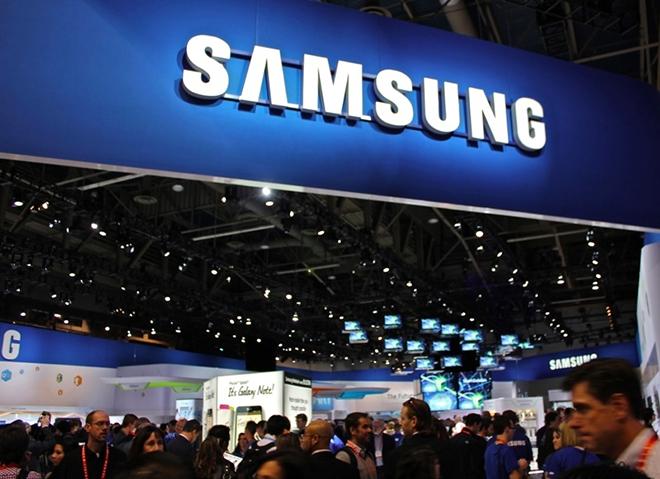Samsung testing 5G wireless technology that can download entire movies in seconds
Last updated
South Korean tech giant Samsung says it has developed a wireless transmission standard hundreds of times faster than today's 4G LTE, one that could see users downloading entire movies in seconds.
Samsung on Sunday announced that it had developed a core component of its 5G network by solving a problem that has stymied the wireless industry, Yonhap News reported. Using the 28GHz waveband, Samsung says it has achieved download and upload speeds of tens of gigabits per second (Gbps). Current 4G LTE networks top out at around 75 megabits (Mbps).
In practice, that speed would allow wireless users to download a full HD movie in seconds. Samsung executives see the technology enabling a wide range of rich applications.
Samsung used 64 antenna elements in order to accomplish the high-speed data transfer, and said the company expects that it can commercialize the technology by 2020.
That deadline conforms well to a European Commission goal to have 5G wireless technology in place by the same year. China, too, has been pouring funding into next-generation wireless technology, with hopes to roll out such technology around the same time.
Samsung for years has regularly pioneered in the area of wireless transmission technologies. Some of its wireless advances the company has been able to patent, and some of those patents have been used against Apple in the two companies' ongoing litigation struggles. Samsung's wireless patents, though, are typically standard essential, meaning the company must grant licenses in a fair, reasonable, and non-discriminatory fashion.
Samsung is not alone in developing next generation wireless technology, nor is its recently announced demonstration the fastest of its kind. NTT DoCoMo in February announced that it had successfully conducted a 10Gbps wireless test in Japan last year using the 11GHz band.
High data transmission rates are a constant goal for wireless carriers as well as mobile device makers. Higher transmission speeds were a major selling point for a number of Android handsets in the years before Apple added 4G connectivity to its iPhone. Upon moving to 4G, customers tend to like the extra speed, but a survey last year found that nearly half of American consumers felt they don't need 4G LTE. Most carriers are still transitioning to 4G technology, and even those with established 4G networks typically must wait until their customers upgrade their devices in order to get them online with the standard.
 AppleInsider Staff
AppleInsider Staff














 Amber Neely
Amber Neely
 Thomas Sibilly
Thomas Sibilly

 William Gallagher
William Gallagher
 Malcolm Owen
Malcolm Owen
 Christine McKee
Christine McKee










101 Comments
I recall musing on AI a year or two ago that one day the internet will be so fast we will cease even thinking about download speeds just as we didn't when watching an analog TV show in the past, it was 'just there'. We are getting closer.
I can barely think of decent uses for 4G, let alone 5G. My 3G connection streams video adequately, and that's about as data intensive as I need, or will need for in the foreseeable future.
I don't care for downloading video in seconds. As long as I can stream it, and play it immediately, who cares.
I recall musing on AI a year or two ago that one day the internet will be so fast we will cease even thinking about download speeds just as we didn't when watching an analog TV show in the past, it was 'just there'. We are getting closer.
We are already there in a sense. You can stream a movie or even download it as you watch it. It's just that most servers aren't that fast.
It's good that companies innovate and in the future we are probably going to use this kind of technology, but I don't see how it could change our behaviors on the web radically. Right now, there is no point in having this. I can download a whole HD movie on my cellphone in less than 15 minutes, I don't see how 5G is going to make that radically a better experience. But yes, more speed is welcome nonetheless.
ps : wow samsung innovating? that's news.
[quote name="digitalclips" url="/t/157489/samsung-testing-5g-wireless-technology-that-can-download-entire-movies-in-seconds#post_2325737"]I recall musing on AI a year or two ago that one day the internet will be so fast we will cease even thinking about download speeds just as we didn't when watching an analog TV show in the past, it was 'just there'. We are getting closer.[/quote] Perhaps that day will come but remember that with faster downloads we allow ourselves to get larger files. Consider that webpages really don't render instantly despite our internet speeds, and HW and SW engines (like WebCore) have increased by orders of magnitude since we first started using the internet. This is because our webpages are so much larger and more complex complex than they used to be. Once 5G network speeds get here how much larger will the average video be? Hopefully not that much larger with H.265 allowing us to further decrease the size by about half for a given quality comparison to H.264, but you never know our expectations are moving all the time. Another thing to consider is that any given bandwidth is shared and with more and more people using the bandwidth the actual throughput will not increase at the same ratio as the bandwidth. This also includes the routing and switching overheard for dealing with more users and more packets and more datagrams on the network, and that's without security overhead which need to be beefed up in the future in order to deal with potential threats. But besides all that the future looks very bright. :D (I really didn't mean to start Monday so gloomy)
I see we've morphed in to Samsung insider again. And this article actually reads like a PR piece from Samsung more than anything else.